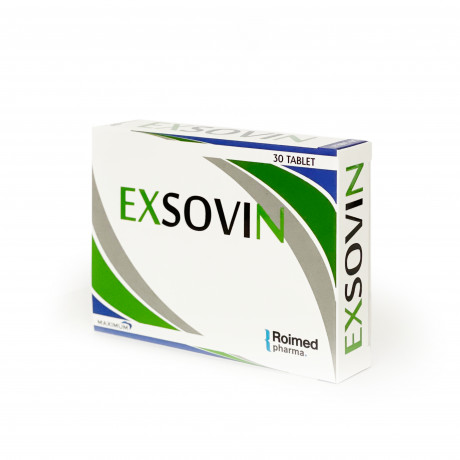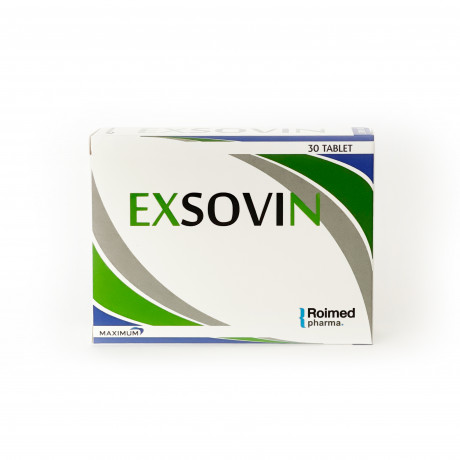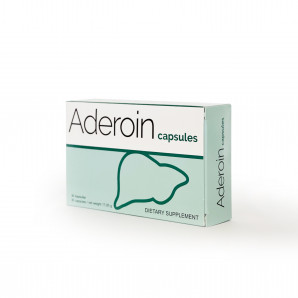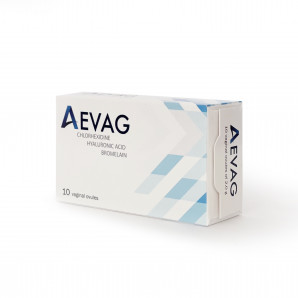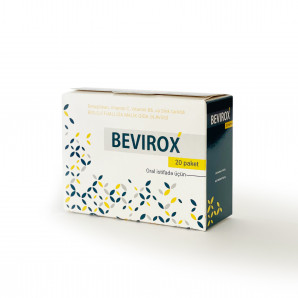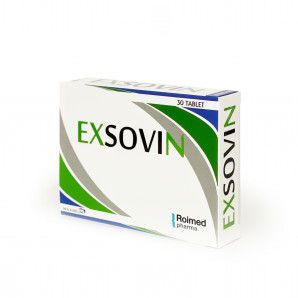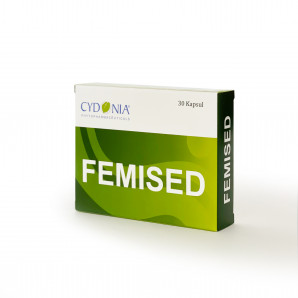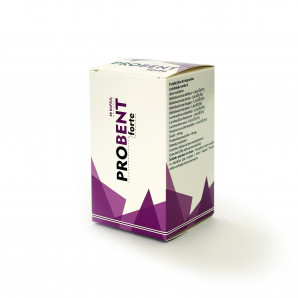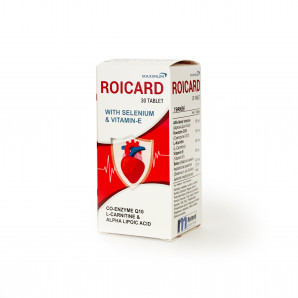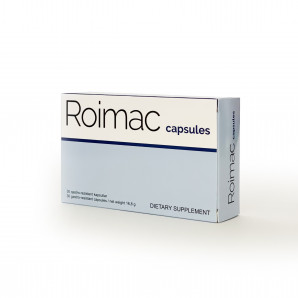EXSOVIN Tablet №30
INGREDIENTS:
Phosphatidylserine (30%) - Phosphatidycholine (20%) - 100mg
(Phosphatidylserine-Phosphatidylcholine)
(Ginkgo biloba leaf extract) - 80mq
Dimethylglycine hydrochloride - 100mg
Inositol - 100mg
Vitamin B1 (as Thiamine hydrochloride) - 1.1mg
Vitamin B2 (Riboflavin) - 1.4mg
Vitamin B6 (as Pyridoxine hydrochloride) - 1,4mg
Folic acid - 200mkq
Vitamin B12 (Cyancobalamin) - 2,5mkq
Excipientsr: Maltodextrin, Microcrystalline cellulose, Sodium croscarmellose, Silicium dioxide, Vegetable grade magnesium stearate
Pharmacological group: Nootrop, angioprotector, antiplatelet agents
FEATURES:
Phosphatidylserine - is involved in the regeneration of neurons, the synthesis of neurotransmitters (acetylcholine, etc.) and the removal of mediators from the bubbles, the movement of ions and the transmission of bioelectric energy. It stimulates cholinergic processes in brain tissue by stimulating the synthesis of acetylcholine. It provides the division and growth of nerve cells. It activates the metabolism of glucose in brain tissue, increases the resilience of nerve cells against ischemic complications.
Phosphatidylcholine - is involved in the synthesis of acetylcholine, improves metabolism in nerve tissue and promotes active brain function by improving the transmission of nerve impulses in cholinergic neurons. Phosphatidylcholine is involved in the synthesis of sphygminiel, provides the formation of the myelin sheath and restores the structure of the cell membrane. It improves cerebral circulation. It has nootropic, membranoprotective, antidepressant and antiaterosclerotic effects. It normalizes sleep, improves mood, lowers blood cholesterol and fatty acids.
Ginkgo Biloba - improves cerebral circulation, as well as coronary and peripheral blood circulation. Its flavonoid glycosides (24%) optimize energy supply by activating the process of glycolysis in cells (mainly brain cells), reducing the cells' need for oxygen. So, it strengthens cognitive functions by restoring the normal functions of brain cells. Ginkgo Biloba increases vascular elasticity by strengthening the walls of blood vessels due to terpene compounds (6%). It normalizes the rheological properties of blood by preventing the aggregation and adhesion of erythrocytes and platelets caused by damage to the structure of the vascular wall (endothelial membrane).
Dimethylglycine - is an essential amino acid that activates brain metabolism. It has sedative and antidepressant effects, belonging to the inhibitory mediator complex of the central nervous system. Glycine improves social adaptation and mood by eliminating psycho-emotional stress and aggression by regulating the activity of N-methyl-D-asparate receptors, with GAFA-ergic, alpha-adrenoblocking effects.
Inositol - restores nerve cells, improves sleep and is considered an "antidepressant" vitamin. Inositol increases their strength and elasticity by stimulating the synthesis of collagen and elastin in the vascular wall.
Vitamin B1 (thiamine) is considered an indispensable component for the normal functioning of the nervous system, improves memory and provides the brain with glucose. It is actively involved in the conversion of fats, proteins and carbohydrates into energy, enhances immunity. It is actively involved in the transmission of impulses at synapses.
Vitamin B2 (riboflavin) - supplies various functions of the central nervous system. Besides all this, vitamin B2 is involved in the metabolism of proteins, lipids and carbohydrates, tissue respiration. Deficiency of vitamin B2 in the body leads to disruption of the bleeding process. Vitamin B2 is involved in the organization of the immune system during inflammation.
Vitamin B6 (pyridoxine) - is involved in muscle protein metabolism and other biochemical processes. It strengthens the immune system.
Vitamin B12 (cyanocobalamin) is involved in cell division and growth, also the synthesis of DNA and RNA. Vitamin B12 deficiency causes bleeding disorders. Vitamin B12 is directly involved in metabolism and accelerates tissue regeneration.
One of the important elements in the formation of the blood and the immune system is folic acid (vitamin B9). Folic acid deficiency causes megaloblastic anemia.
ABOUT INDICATIONS:
✓ Dyscirculatory encephalopathies (complications of stroke, traumatic brain injury, aging)
✓ Memory and attention disorders
✓ Weakening of intellectual ability
✓ Excitement, fear
✓ Parkinson's and Alzheimer's disease
✓ Dementia
✓ Sleep disorders (insomnia, narcolepsy)
✓ Epilepsy
✓ Tinnitus
✓ Ischemic heart disease
✓ Arrhythmia
✓ Atherosclerosis
✓ In order to increase attention and memory in young people
✓ Visual impairment due to aging
✓ Diabetic retinopathy
✓ Asthenic, psychogenic, neurotic conditions occurring during brain trauma
✓ Peripheral circulatory and microcirculatory disorders
✓ Arterio and venopathies of the lower extremities
✓ Raynaud syndrome
About contraindications:
Hypersensitivity, children under 8 years of age, pregnancy and lactation.
Side effects:
Rarely, dyspeptic disorders, dizziness and allergic reactions.
How to use and dosage:
It is recommended to use 1 tablet once a day for moderate disorders. In severe disorders, it is recommended to take 1 tablet twice a day with or after meals. The duration of treatment is 1-2 months.
RELEASE FORM:
Tablet №30
STORAGE CONDITIONS:
Store at a temperature not exceeding 25℃, in a dry, protected from light and out of reach of children.
EXPIRATION DATE:
3 years
MANUFACTURER (name and country of location):
Maximum Sağlık Ürünleri San və Tic LTD ŞTİ, Turkey
OWNER OF THE PRODUCT AND TRADEMARK:
“Roimed Pharma” LLC

